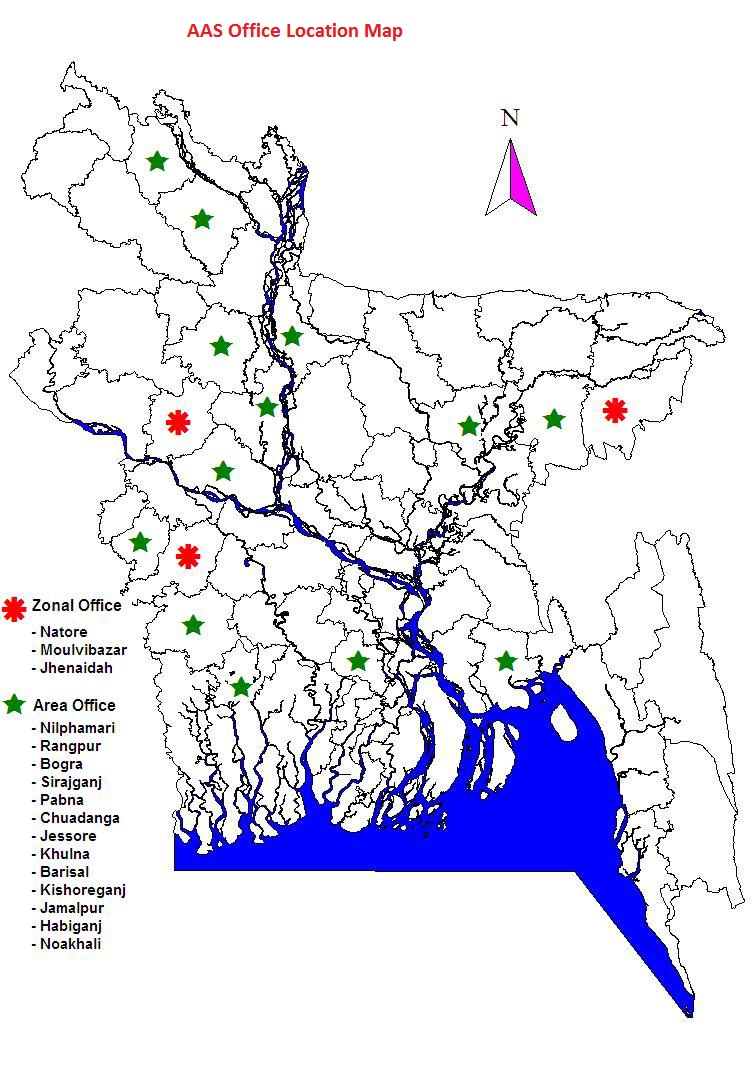The idea of establishing an agricultural NGO to provide quality technical support to other NGO; more generic NGOs; developing their capacity in the field of agricultural was first mooted by a group of prominent professionals including Dr. David Gisselquest, Mr. Harun-Ar-Rashid, Dr. A.J.M Azizul Islam, William H. Derrenger, Dr. Noel P. Magor, Carol M. Derrickson, Dr. Tariful Islam and Dr. Humayun Kabir in 1989. With this end in view, this group formed a NGO called Agricultural Advisory Services. To meet government and registration requirements the name was later changed to Agricultural Advisory Society ( AAS) from January 1991. AAS is registered with NGO Affairs Burea, Societies Act and the Seed Wing, Ministry of Agriculture.
AAS has, from its earliest days, approached the challenges of agricultural development in Bangladesh from the perspective that Bangladesh, after all, is a rich country, blessed with abundant agricultural resources, (i.e., fertile land, plenty of low cost farm labor and abundant reserves of easily available, continuously renewed fresh water). AAS believe that Bangladesh ‘s endemic poverty is simply a reflection of its lack of capacity to effectively manage its rich endowment of agricultural resources. Besides implementation of agricultural projects, AAS has implemented several studies, assessment, evaluation, project inception, formulation and design etc with international and national (Public and private) organizations on contractual basis since its inception in 1989. Moreover, AAS has been working in strengthening supply chains and value chains of agri-inputs and outputs and in adoption of impact of climate change due to global warming in agricultural production system in general and crop production in particular.
Since its inception, AAS has implemented a numerous agricultural projects to alleviate poverty among the resource poor, poor, marginal and small farm families of Bangladesh . AAS has been working as a bridging organization for technology transfer between farmers, partner organizations (POs), input/output traders and companies, the Department of Agricultural Extension (DAE), research institutions (eg. BRRI, BARI, BINA, SRI , BJRI, etc.), Agricultural universities (BAU, B SMRA U, SAU etc.) and public inputs suppliers (e.g. BADC).
AAS’s sustainable agricultural development strategies are focused on:
Modifying traditional agricultural practices to accommodate higher yielding production through ensuring the participation of farmers and partner organizations such as community based organizations (CBOs) and NGOs
Advocating the use of sustainable intensive cropping, fishery and livestock production strategies through partner organizations
Using field based demonstrations to model “ a higher standard of best practice”
Popularizing its strategies through a network of community based partners
Using state of the art training modules: Farmer’s participatory training (FAMPAT) and Focused Group Discussions (FGD) to overcome knowledge and skill deficits
Emphasizing poverty alleviation, gender equity and environmental preservation
Promoting participatory approaches at every stage of project planning and implementation
Details of AAS’s project activities, operational areas, working members, working groups, staff strength, management of AAS are available in a profile of Agricultural Advisory Society (AAS).


